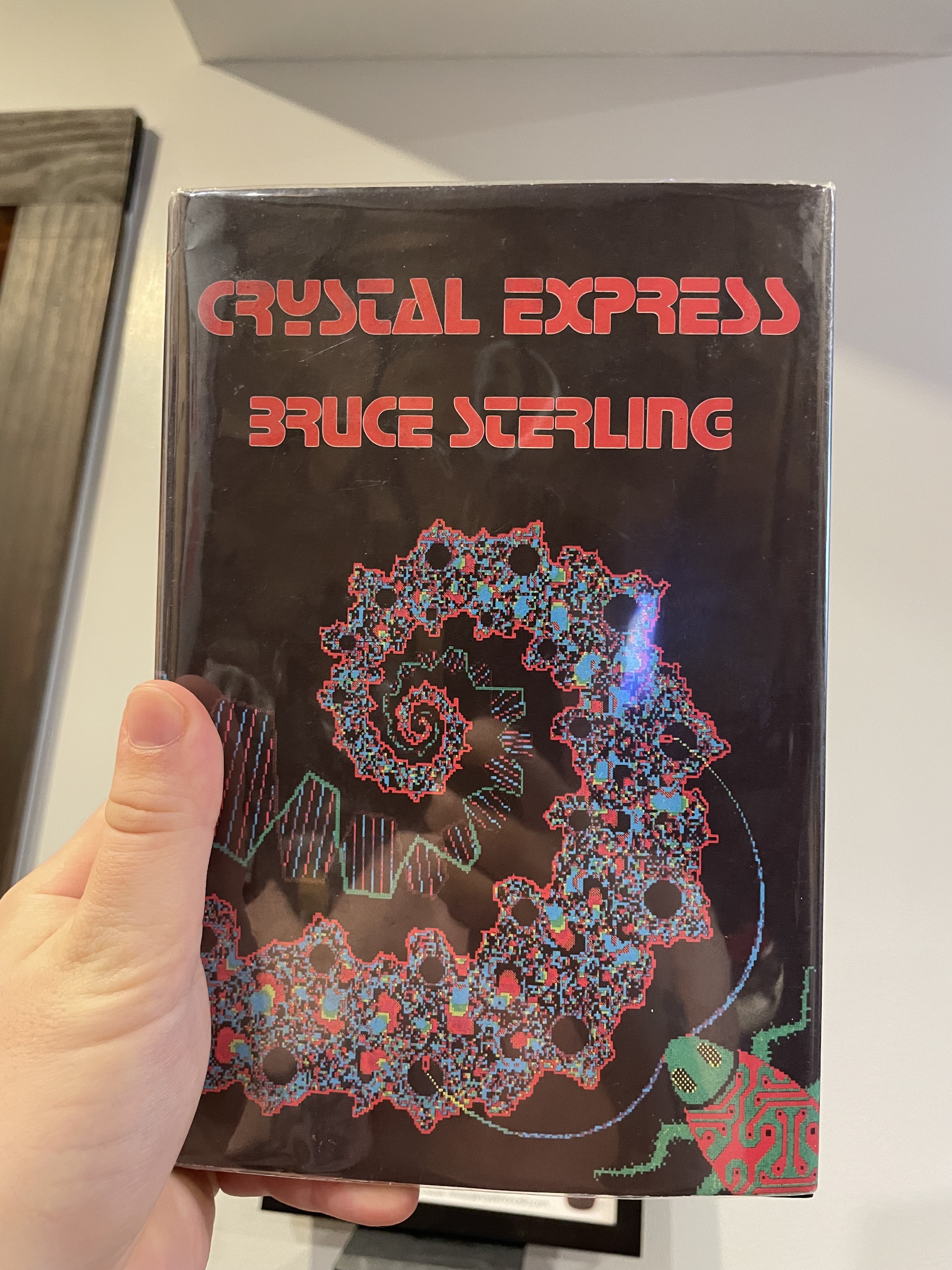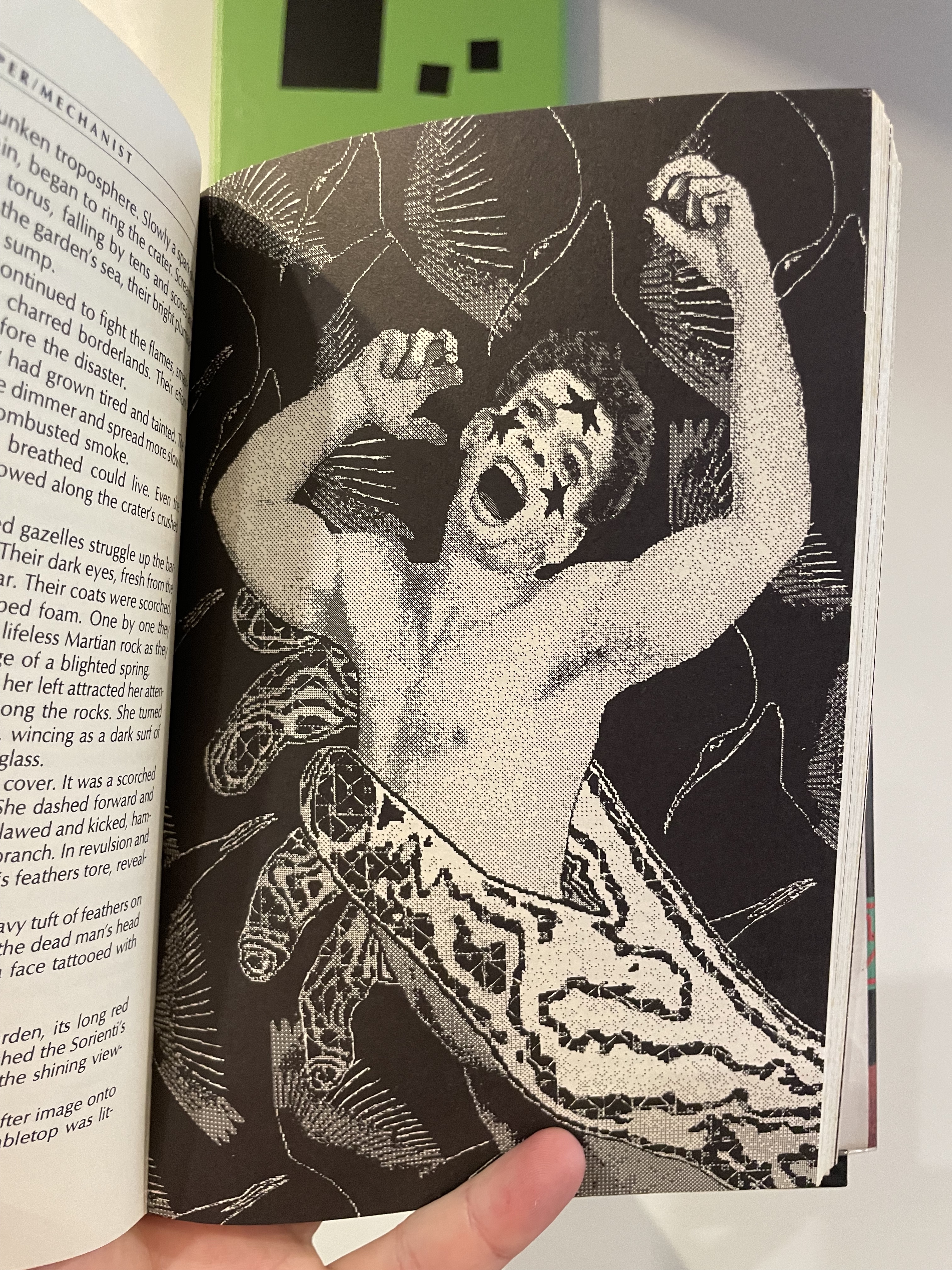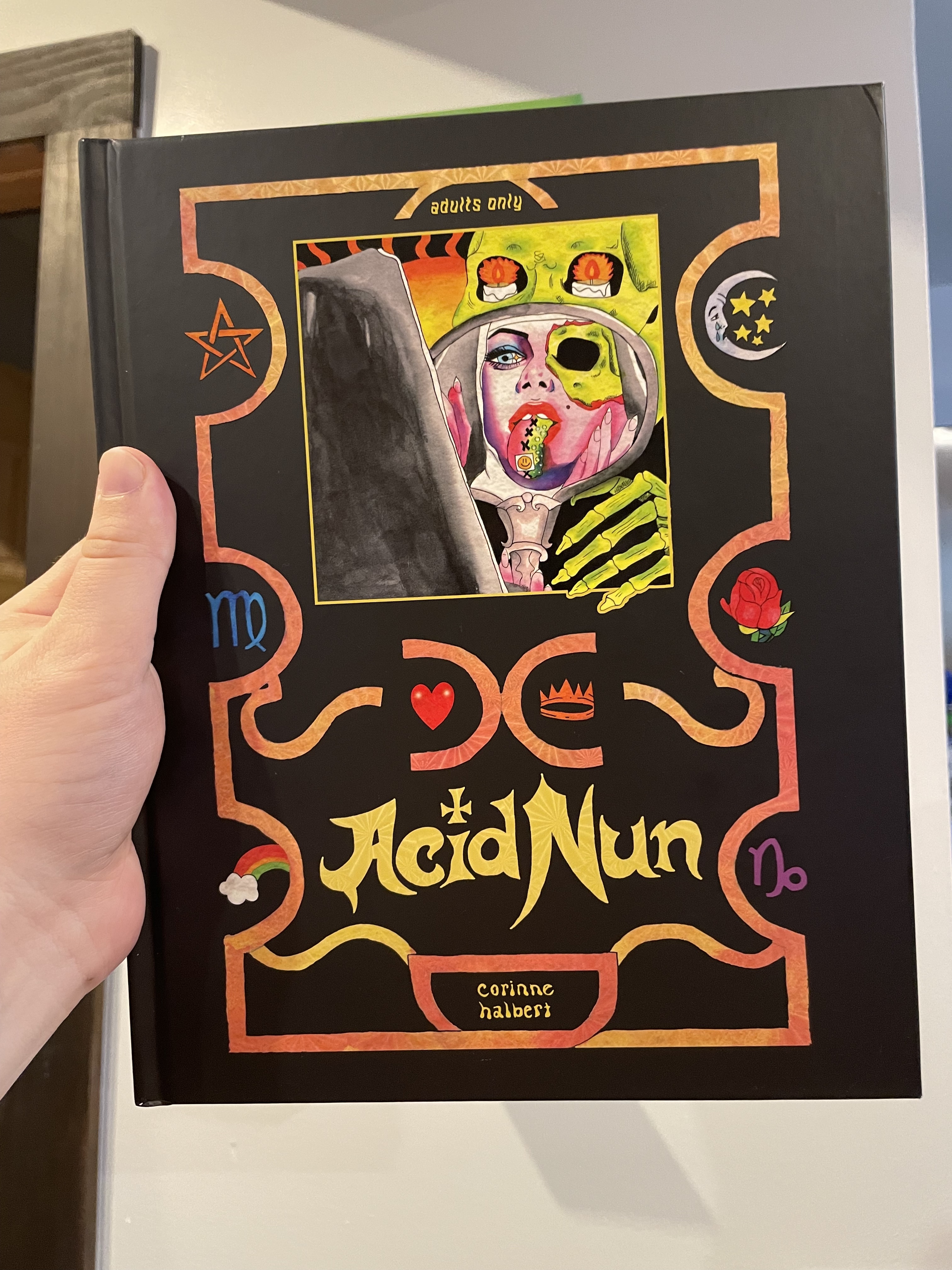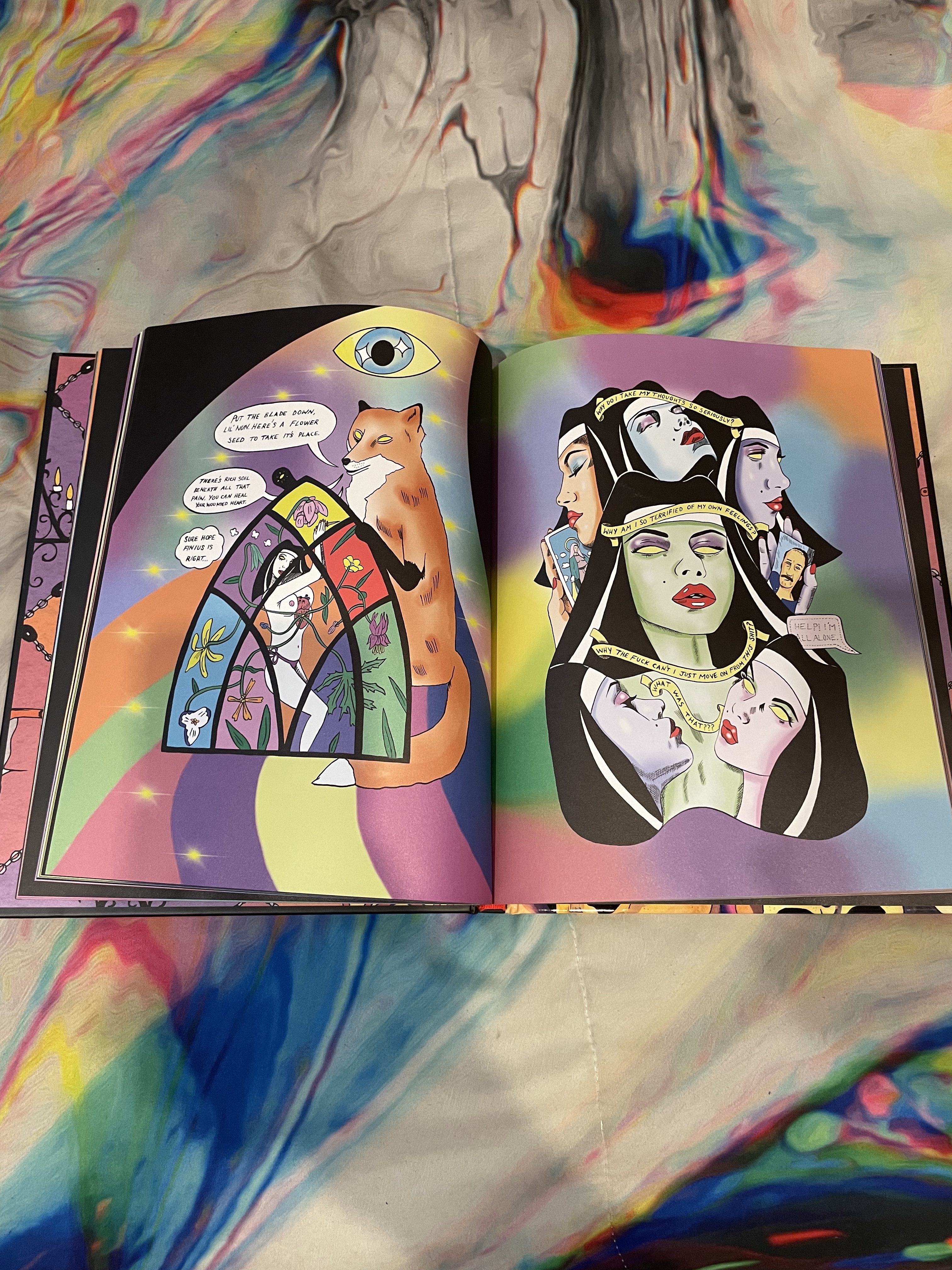i’ve watched so much trash tv lately. awful reality shows from my teen years that my parents used to put on Sunday afternoons while i sat in the living room playing my DS or reading manga scans on the computer. i didn’t know they were still making new episodes of Bar Rescue.
i understand why i want to watch these things. they remind me of when i didn’t need to stress about how my rent is half my income and i still thought that going to college would set me up for a future where i wasn’t so sad most of the time. sometimes i wish i could force myself to engage with new media. i started Dungeon Meshi over the weekend on a day when i felt particularly lonely and hoped it would break my nothing new streak, and while i enjoyed it, there is something in me that doesn’t have the right sensibility to start something new.
i’m not sure i’ll go back to it.
this weekend i also started reading Bruce Sterling’s Crystal Express, a collection of speculative stories he published in 1989, even though I’m sitting halfway through the 50s butch dyke odyssey Greasepaint. months ago i picked up the first edition hardcover of Crystal Express at an indie bookstore in my neighborhood, and the design interested me, not only the cover, but full page black and white pixel illustrations inside the book, all by artist Rick Lieder. i only paid $15 for it, but according to listings online, it can go for $50 to $100 in good condition, so i guess i got a deal. i like sci-fi but don’t read as much as i would like—the literary establishment loves to differentiate between “sci-fi” and “speculative fiction.” one is for nerds and other is for intellectuals. i of course disagree.


i’m trying to only read one story a day so that i don’t put too much pressure on myself. it’s easy to focus on productivity when it comes to media and art engagement. we even talk about engagement in terms of productivity; we call it media consumption. when there are ten new things to watch or read every day, and all the people around you are asking, oh did you see this? and forming relationships and bonds over what they put on each night to turn their brains off, it is both isolating and freeing to allow yourself to follow your own inclinations about these types of things.
i’ve also read some wonderful comics and graphic novels recently. comics, i think, are my favorite medium, because they combine all the things i love about all the other mediums. Corinne Halbert’s Acid Nun left a strong impression on me—a sexual psychedelic journey about healing trauma deeply inspired by the underground comix movement, b-movies, and other exalted forms of mid and late 20th century “low culture,” it’s really right up my alley. Smoking Kills by Thijs Desmet is also a thoughtful liminal meditation on death, loneliness, and companionship, and, while i haven’t started it yet, i received my preorder of Leo Fox’s My Body Unspooling and i can’t wait to start it.


in the realm of literary fiction, as i mentioned i am reading Hannah Levine’s Greasepaint, which i can’t recommend enough to anyone who loves butches and anarchists. it’s a fairly short book, but it will take some time for you to read. the prose is very impressive—stream of consciousness, though somehow not of a character, but a whole community of butches in a 1950s lesbian bar scene. i heard the author did most of her research at the Lesbian Herstory Archives here in Brooklyn, and it really shows.
i would also recommend another recent read: Marie Helene Bertino’s Beautyland. i have a soft spot for “weird girl” books—Sayaka Murata’s Earthlings and Convenience Store Woman, as well as You Too Can Have a Body Like Mine by Alexandra Kleeman, Miranda July’s The First Bad Man, and the works of Ottessa Moshfeg (forget My Year of Rest and Relaxation; her short story collection is criminally underrated) rank among my favorites. Beautyland is a story about alienation, connection, community—the things that make us different from everyone else around us. it is beautiful because our protagonist feels the pain of her differences, but also finds that she is loved anyway. it’s the only book i mention in this post that made me cry. i am almost crying just thinking about it. wild how aliens know so much about being human. which i guess brings me back to Crystal Express and Sterling’s Shaper/Mechanist stories, about a future where humanity lives in space and has split into different warring factions. The Shapers better themselves through genetic alterations and pride themselves on their high IQs and intellectual prowess, whereas the Mechanists rely on advanced machines to aid them. these stories also raise vital questions about humanity, including—at what point do we cease to be human? i like them very much.